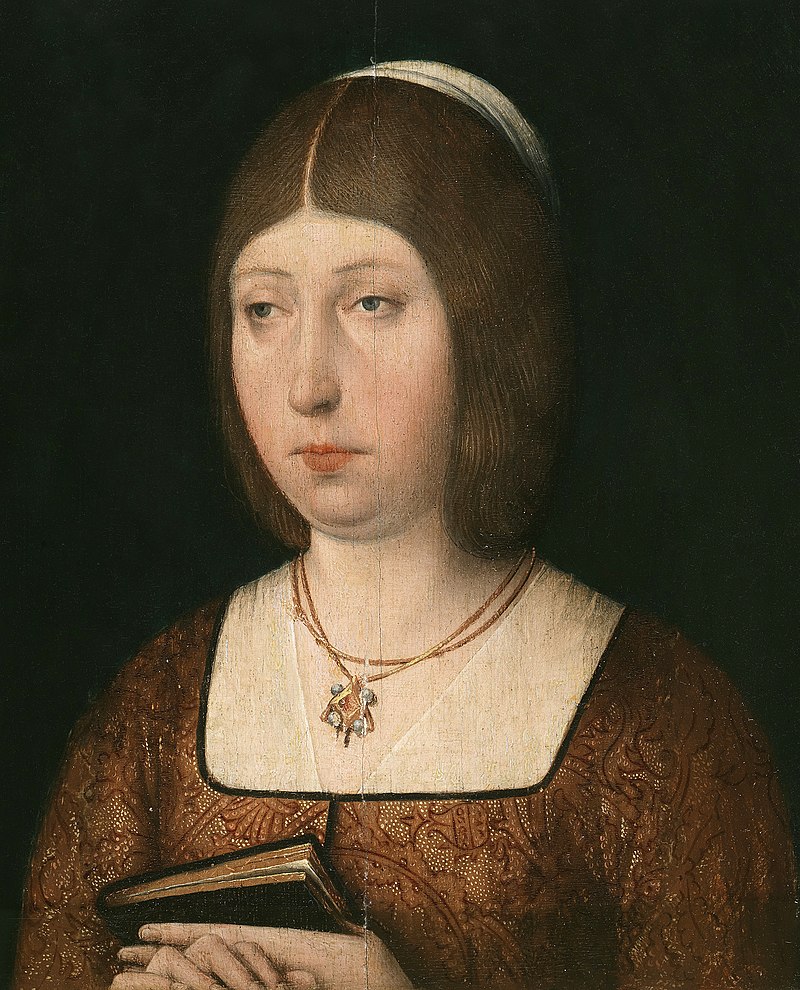
Isabel la Católica
Isabel la Católica, also known as Queen Isabella I of Castile, was a pivotal figure in the history of Spain and the European exploration of the Americas. She reigned from 1474 until her death in 1504, during which she and her husband, Ferdinand II of Aragon, completed the Reconquista, unified Spain, and sponsored Christopher Columbus's 1492 voyage to the New World, which led to the widespread European exploration and colonization of the Americas.
Born on Nov 22, 1451 (574 years old)
Global Media Ratings
Countries Mentioned
No country-level mention data available.
Interactive World Map
Each country's color is based on "Mentions" from the table above.
Recent Mentions
 Peru:
Isabel la Católica was proclaimed queen of Castile in the city of Segovia.
9
Peru:
Isabel la Católica was proclaimed queen of Castile in the city of Segovia.
9
 Venezuela:
Isabel la Católica's lucid role deserves historical recognition for her efforts to protect souls and promote civilization.
9
Venezuela:
Isabel la Católica's lucid role deserves historical recognition for her efforts to protect souls and promote civilization.
9
 Spain:
Isabel la Católica is one of the prominent figures in the show El Sueño de Toledo.
8
Spain:
Isabel la Católica is one of the prominent figures in the show El Sueño de Toledo.
8
 Venezuela:
Isabel la Católica issued numerous ordinances for the care and protection of indigenous peoples.
8
Venezuela:
Isabel la Católica issued numerous ordinances for the care and protection of indigenous peoples.
8
 Argentina:
Isabel la Católica is mentioned as being redefined in contemporary discussions about monuments in Latin America.
5
Argentina:
Isabel la Católica is mentioned as being redefined in contemporary discussions about monuments in Latin America.
5
 Venezuela:
Isabel la Católica was the queen of Castile and León who promoted Columbus's voyages.
8
Venezuela:
Isabel la Católica was the queen of Castile and León who promoted Columbus's voyages.
8
 Uruguay:
Queen Isabel la Católica ordered the first shipment of gold from the Americas.
6
Uruguay:
Queen Isabel la Católica ordered the first shipment of gold from the Americas.
6
 Spain:
Isabel la Católica fue la última de este linaje en dejar su sello en el castillo.
6
Spain:
Isabel la Católica fue la última de este linaje en dejar su sello en el castillo.
6
 Venezuela:
Isabel la Católica was confident in finding land beyond the Iberian Peninsula.
7
Venezuela:
Isabel la Católica was confident in finding land beyond the Iberian Peninsula.
7
 Argentina:
Isabel la Católica is mentioned as the queen who is being attended by a chaplain in the narrative.
5
Argentina:
Isabel la Católica is mentioned as the queen who is being attended by a chaplain in the narrative.
5